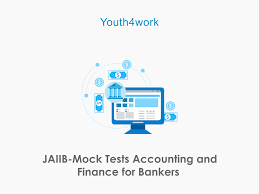From the moment a baby is born, they begin to develop an identity. They use smiles, looks, sounds and movements to communicate with their caregivers.
This developmental process is essential for future learning and growth. The quality of interactions and care a child receives during the first two years will determine how their brain grows.
Physical Development
Physical development occurs at a rapid rate right after a baby is born. The body, brain, and senses change dramatically during this time frame.
During this period, infants develop a number of important skills such as rooting, sucking, grasping and other reflexes. They also develop neck muscles that allow them to hold their head up for a few seconds with support.
They begin to crawl, roll from back to stomach, and take their first steps. They can also pick up small objects with their hands and learn to grip items between their thumb and one finger, such as a block or a toy cube.
They also learn to tell objects apart from backgrounds with very little contrast (such as a button on a blouse of the same color). This is an early step toward learning fine-motor skills, which involve small muscle groups such as hands, wrists, and fingers. These skills are crucial for success in school.
Cognitive Development
In the first 2 years of life, children develop cognitive skills that prepare them for school and other learning experiences. These abilities include reasoning, intelligence, language development and memory.
Research has shown that children who develop these abilities in the early childhood years are more likely to succeed in school. Therefore, it is important for parents to support their children?s cognitive development in these early stages so that they can develop strong cognitive skills as they grow older.
The cognitive stages of child development, which were devised by Jean Piaget, are divided into Sensorimotor (ages 0 to 2 years) and Preoperational (ages 2 to 6 years).
In the Sensorimotor stage, infants use their senses to learn about their environment. They also use motor abilities to move objects and explore their world. They may begin to distinguish between different sounds and tastes, recognize familiar faces and respond to their parent?s facial expressions. They are also able to detect differences in volume and pitch.
Social Development
Social development is how your child learns to interact with other people and develops friendships. It’s also how your child learns about their own emotions, feelings and needs.
The first 2 years of life are an important time for your child’s development. They learn to understand and manage their own emotions, as well as those of others, and how to behave in ways that are safe and acceptable.
During this period, your child will also learn to mimic other people’s behaviour and expressions of emotion. For example, they may wave bye-bye to you if they want to go somewhere or show appreciation when they are applauded for a good job.
During this time, they will also build a strong relationship with their caregivers and form attachment bonds with them. These bonds will provide your child with a secure base in which to explore their world and learn new things.
Emotional Development
Emotions are a crucial part of child development and are learned through close relationships with supportive caregivers. In the first half of infancy, babies’ emotional responses are largely instinctual and guided by the lower limbic system.
By the second half of infancy, emotions enter the cerebral cortex and are myelinated to become part of the baby?s consciousness. In addition, infants start to develop social skills, including responding positively to positive social input and developing healthy attachments with their primary caregivers.
Children learn to recognize and respond to basic emotions, such as interest, happiness, anger, fear, surprise, sadness and disgust. In addition, self-conscious emotions such as envy, pride, shame, guilt and doubt also appear as children develop a sense of their own self-concept.
In addition to primary emotions, children acquire empathy by learning how to understand the feelings of others. Empathy is a critical skill for children to master because it can help them interact effectively with their peers, develop trust and resolve conflict.
